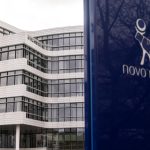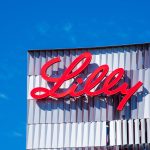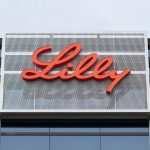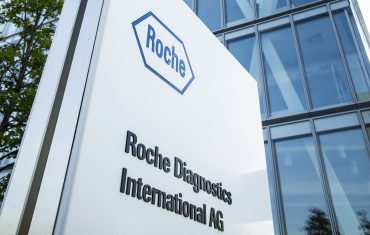
- M&A
- Obesity
- Pharma & Biotech
Roche Acquires 89bio for $3.5 Billion in MASH Treatment Deal
6 minute read

Roche’s acquisition of 89bio advances liver disease treatment development as MASH market approaches $50 billion opportunity
Key Takeaways
- Roche acquires 89bio for up to $3.5 billion in a deal combining $2.4 billion upfront and $1.1 billion in contingent payments, representing a 79.5% premium over Wednesday’s closing price.
- Pegozafermin targets $50 billion MASH market by 2030 with breakthrough therapy designation from FDA, addressing obesity-linked liver disease affecting 5-7% of global adults.
- 89bio shares surge 18.5% in after-hours trading following the announcement, lifting market capitalization to $1.2 billion as investors embrace the performance-based deal structure.
Introduction
Roche Holding announces a definitive agreement to acquire U.S. biopharmaceutical company 89bio Inc for up to $3.5 billion, marking one of the largest biotech acquisitions focused on metabolic liver disease. The Swiss pharmaceutical giant offers $14.50 per share in cash at closing plus contingent value rights worth up to $6.00 per share based on future milestones.
This acquisition positions Roche at the forefront of the rapidly expanding market for metabolic dysfunction-associated steatohepatitis (MASH) treatments. The deal targets 89bio’s lead candidate pegozafermin, which addresses a liver condition affecting millions globally and represents a commercial opportunity exceeding $50 billion by 2030.
Key Developments
The boards of both companies unanimously approved the transaction structure, which includes immediate cash consideration of $2.4 billion and performance-based payments potentially adding another $1.1 billion. This risk-mitigated approach allows Roche to secure 89bio’s pipeline while tying additional payments to developmental and regulatory achievements.
Pegozafermin currently undergoes pivotal studies for treating moderate to severe MASH, including patients with advanced fibrosis and cirrhosis. The drug candidate operates through a unique mechanism activating FGFR1c, 2c, and 3c receptors, offering anti-fibrotic and anti-inflammatory properties that distinguish it from competing therapies.
Regulatory momentum supports the acquisition timeline, with pegozafermin already securing FDA Breakthrough Therapy designation and EMA PRIME status. These accelerated pathways signal regulatory recognition of significant unmet medical need and expedite the path to market approval.
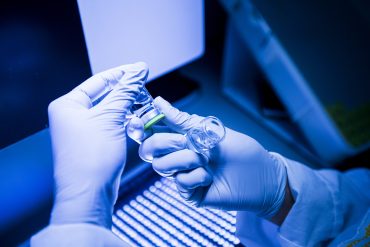
Market Impact
89bio shares jumped 18.5% in after-hours Nasdaq trading following the announcement, elevating the company’s market capitalization to $1.2 billion. The premium reflects investor confidence in pegozafermin’s commercial potential and validates the growing attraction of metabolic disease assets.
The biotech sector responds positively to the deal structure, viewing the contingent payments as a model for balancing acquisition risk with reward potential. According to Investing.com, this approach addresses investor concerns about paying full premiums for early-stage assets while ensuring adequate compensation for successful development outcomes.
Industry analysts note increasing competition among major pharmaceutical companies for metabolic disease assets. The acquisition follows a broader pattern of large pharma investments exceeding $350 billion in U.S. operations, driven by supply chain considerations and regulatory environment changes.
Strategic Insights
Roche strengthens its cardiovascular, renal, and metabolic disease portfolio through this acquisition, creating potential synergies with existing oncology treatments. The convergence of metabolic and cancer pathways offers combination therapy opportunities, as chronic inflammation and metabolic dysfunction increasingly link to tumor progression.
The MASH market opportunity grows substantially due to rising global obesity rates and associated comorbidities. Current estimates suggest 5-7% of adults worldwide suffer from this condition, which can progress to cirrhosis or liver cancer without effective intervention.
Pegozafermin’s weekly subcutaneous dosing through glycoPEGylation technology reduces treatment burden compared to frequent hospital-based therapies. This delivery advantage positions the drug favorably against competitors while improving patient compliance and quality of life.
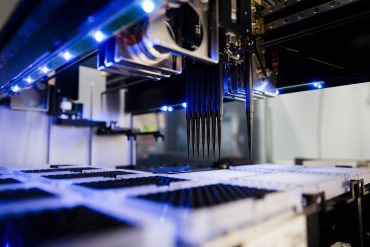
Expert Opinions and Data
Roche Group CEO Thomas Schinecker emphasizes that the acquisition bolsters the company’s metabolic disease capabilities while opening combination therapy possibilities. The integration aligns with Roche’s strategy to leverage cross-portfolio synergies, particularly where metabolic and inflammatory pathways intersect with cancer biology.
Clinical trial data demonstrates pegozafermin’s favorable safety profile, with adverse events limited primarily to transient nausea and diarrhea. This tolerability profile supports potential use in combination therapies and positions the drug as a candidate for broader patient populations.
The transaction forms part of Roche’s previously announced $50 billion U.S. investment commitment over five years. This broader capital allocation strategy addresses supply chain vulnerabilities and potential regulatory changes while positioning the company for continued growth in key therapeutic areas.
Conclusion
The 89bio acquisition represents Roche’s disciplined approach to expanding its metabolic disease franchise while maintaining financial prudence through performance-based payments. The deal provides immediate access to a promising late-stage asset addressing significant unmet medical need in a rapidly growing market.
Integration of 89bio’s employees into Roche’s pharmaceuticals division proceeds toward anticipated fourth-quarter 2025 completion, subject to standard regulatory approvals and shareholder acceptance. The transaction establishes Roche as a major competitor in MASH therapeutics while creating potential synergies across its broader therapeutic portfolio.
